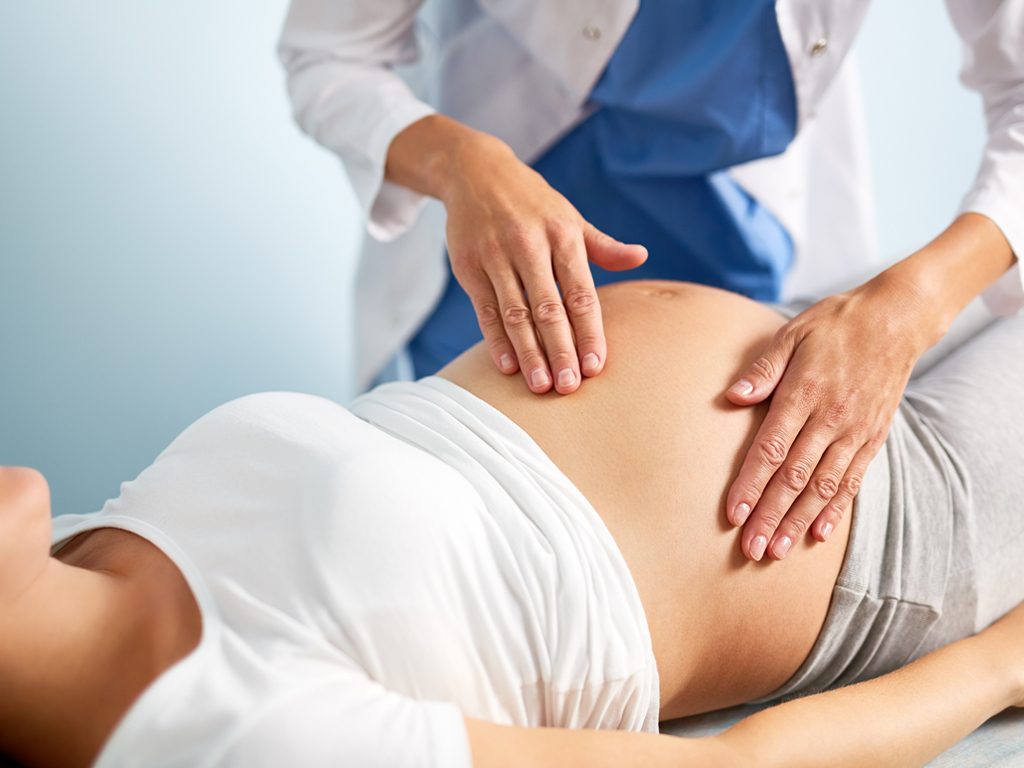What is it and why does it happen?

Down syndrome is a set of mental and physical symptoms that result from having an extra copy of the human Chromosome 21. This is the result of abnormal splitting of the chromosomes during the formation of the egg or sperm. The result following fertilization results in 47 chromosomes (normal human has 23 pairs or 46 chromosomes) with three copies of the Chromosome 21, hence the condition is called Trisomy 21.
Down syndrome occurs in people of all races, regardless of their economic statuses.
The chance of having a baby with Down syndrome increases as a woman gets older -from about 1 in 1,000 for a woman who gets pregnant at age 25, to about 1 in 100 for a woman who gets pregnant at age 40. But due to higher fertility rates in younger women, 80% of children with Down syndrome are born to women under 35 years of age.
Down syndrome is not a condition that can be cured. However, early intervention can help many people with Down syndrome live productive lives well into adulthood. People with Down syndrome have an increased risk for certain medical conditions such as congenital heart defects, respiratory and hearing problems, Alzheimer’s disease, childhood leukaemia, and thyroid conditions.
A few of the common physical traits of Down syndrome are low muscle tone, small stature, an upward slant to the eyes, and a single deep crease across the centre of the palm (see sidebar, Characteristic Features & Symptoms). However, it is important to bear in mind that every person with Down syndrome is a unique individual and may possess these characteristics to different degrees or not at all. Life expectancy for people with Down syndrome has increased dramatically in recent decades – from 25 in 1983 to 60 today.
Can couples avoid having babies with down syndrome?
While the majority of babies are normal, each couple will have a risk of conceiving a baby with such a chromosomal condition. The risk decreases with the age of the mother and her health status! There are screening methods to help a couple determine their personalised risk of an affected child and diagnostic tests to confirm the diagnosis if needed.
The most accurate way of estimating the risk of the foetus having Down Syndrome is the First Trimester Pregnancy Screen which is carried out at 11 to 14 weeks of the pregnancy. The risk score depends on the following:
- Age of the mother
- Amount of fluid behind the neck of the foetus (nuchal translucency)
- Presence or absence of the foetal nasal bone
- Foetal heart rate
- Level of two hormones (free ß-hCG and PAPP-A) in the mother’s blood
- Presence or absence of any physical abnormalities
After the scan, on the basis of all the above factors the estimated risk for Down Syndrome will be discussed with the couple. The only way to know for sure whether or not the foetus has a chromosomal abnormality is by having an invasive test such as chorionic villus sampling (CVS) or amniocentesis (amnio). However, these tests carry a risk of miscarriage of up to 0.5% to 1%. Studies show that the procedure-related loss risk for both amniocentesis and chorionic villous sampling is the same.
It is up to you and your partner to decide whether or not the risk of the foetus having a chromosomal abnormality is high enough to warrant having an invasive test.x As a guideline, an invasive test is usually offered if the risk of Down Syndrome is 1 in 250 or above (which corresponds to the risk of DS at 35 years).
The only well known risk factor for conceiving a child with Down syndrome is advanced maternal age. The older the woman is at conception, the greater the risk of having a child with Down syndrome.
Mother’s age at conception Risk of Down syndrome:
- 25 years 1 in 1,250
- 30 years 1 in 1,000
- 35 years 1 in 400
- 40 years 1 in 100
- 45 years 1 in 30
Women with Down syndrome have a 50% risk of conceiving a child with Down syndrome. If the father has Down syndrome, the risk of conceiving a child with Down syndrome is also increased.
Prior to pregnancy, the couple, in particular, the mother should ensure that she is healthy and fit as this will help reduce the number of abnormal eggs she produces. Adequate prenatal supplementation will also assist in reducing the incidence.
Each child is unique and special, should your pregnancy be affected, hear both sides of what the condition means and make a decision as a couple how you wish to proceed with the pregnancy going forwards.
Down Syndrome Association
For those who need assistance or guidance on proper care of family members with Down Syndrome, they can approach the Down Syndrome Association (DSA) of Singapore which aims to educate and assist families with these special members. It is a self-funding, non-profit voluntary welfare organisation.






